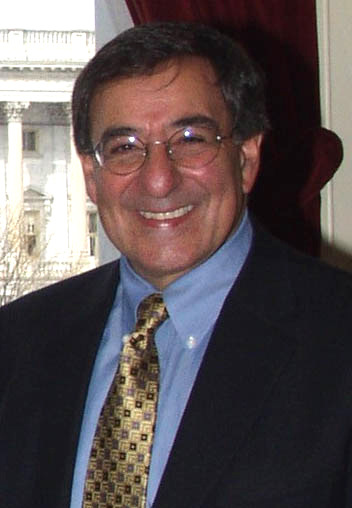The New York Times' David Brooks has denounced the "permanent Democratic agenda" of healthcare spending, alternative energy investment and ... Pell Grants, calling instead for cuts to the payroll tax that funds Social Security. Meanwhile, noted prescription drug abuser and all-around lardass Rush Limbaugh (whose power over Republican lawmakers is reportedly growing) wants to use the stimulus as an "experiment" to "prove" how well corporate tax cuts work.
It's not just enough to say, "Are you f&$%ing kidding me, you Oxy-Contin-addicted swine?!" because millions of Americans (and probably no more than a dozen people in any other country) take these things seriously.
 In this post we'll sketch out a quick (because it's almost 1 a.m.) defense of public spending as an economic stimulus; and in the following three posts, we'll argue for ways that money could be spent to improve quality of life by showing how urban planning principles are currently changing; how infrastructure spending can take advantage of that; and why putting some of the money toward the arts would be a good idea.
In this post we'll sketch out a quick (because it's almost 1 a.m.) defense of public spending as an economic stimulus; and in the following three posts, we'll argue for ways that money could be spent to improve quality of life by showing how urban planning principles are currently changing; how infrastructure spending can take advantage of that; and why putting some of the money toward the arts would be a good idea.So why do we think public-works spending will be a more effective stimulus than Rush Limbaugh and John Boner's tax cuts?
The quickest explanation is that the reason many consumers seem to be cutting back their spending -- and thereby sending the economy into a tailspin -- is that people are afraid for their income rather than their wealth. This is a point raised in a slightly different context by James Surowiecki in the New Yorker last week; the short of it is that we're buying fewer Wiis, Chevys and expensive meals not because we are flat-out broke (i.e., lacking in wealth) and, if given $20 or $500, we'd be purchasing like a panhandling wino who gets a tenner, but because we're worried about having a solid income in a year's time. Unemployment could hit double digits this quarter, and consumer confidence is in the doldrums. If most of us who aren't dirt-poor get a $500 tax break (an addition to our wealth, not a permanent increase in our income), we'll stash it away for the rainy day we fear is ahead, rather than take our stimulative duties seriously and buy 20 lbs. of steel, put in a few orders for some durable goods, and grab ourselves a 42" TV.
What's needed to rev up consumer confidence is jobs confidence. When employment expands, the broader economy jumps, and we all start breathing a sigh of relief that we will indeed still have an income in half a year -- freeing us to re-max out our credit cards today and kick the economy back into debt-driven gear.
But if we're going to max out our national credit card with China, we need to do more than just create jobs. John Maynard Keynes might have famously said that a government could stimulate an economy by paying people to dig holes and fill them up (see the dudes to the right), but even if that pulls us
 out of recession a tad faster, a policy of utterly wasteful spending is not worth potentially indebting ourselves for decades to come.
out of recession a tad faster, a policy of utterly wasteful spending is not worth potentially indebting ourselves for decades to come.The challenge, then, is to create jobs that do lasting good, something that President Obama and advisers like Rahm Emanuel are certainly aware of. But, as David Leonhardt, David Sanger and ... David Leonhardt have explored in the New York Times, determining how to successfully transform the economy into a 21st-century "star" that can quickly get back on the trail to strong long-term economic growth is no small feat.
As Leonhardt notes, America has fallen far from benchmarks it once set in research and development, transportation efficiencies, education, healthcare and even Internet access. If we are to thrive in the 21st century, we need to get back to work in re-establishing these areas and many others.
The rub, however, is that investing into these areas doesn't necessarily equal the short-term growth that can help snap the recession. Economist and former Federal Reserve member Alice Rivlin has argued to Congress that it should quickly adopt a scaled-down stimulus package intended to defibrillate the economy, then pass the legislation that puts us on firm footing for the longer term. The question becomes: What sort of targeted spending can put us in good stead to grow over the long run while also attack the recession?
Tax cuts, if confined to the poorest Americans, would be fast-acting. But because their return is terrible (30 to 40 cents on the dollar), and because of the need for income stability rather than wealth that we described above, tax cuts may provide a short-term kick but will clearly need to give way to spending to create jobs and pull up the economy.
The greatest need -- and most glaring hole in the bill the House passed -- is infrastructure spending. As Leonhardt notes, the infrastructure spending the House lazily fell back on is unlikely to provide the transportation paradigm shifts needed to improve our decaying 20th-century infrastructure to make it the virtue in the 21st century as it was in the 20th:
In the current system, the federal government sends money to states without any real effort to evaluate whether it will pay for worthy projects. States rarely do serious analyses of their own. They build new roads before fixing old ones. They don’t consider whether those new roads will lead to faster traffic or simply more traffic. They spend millions of dollars on legislators’ pet projects and hulking new sports stadiums. In the world of infrastructure, cost-benefit analysis is still a science of the future.
So what should be done? As Leonhardt advocates, an infrastructure bank could be created (as Obama promised in the campaign) to oversee spending and make less pork-minded decisions than Congress does; new state cost-benefit-analysis offices could be created to make sure money is spent intelligently (which it isn't now); and rather than spending $30 billion to re-tar roads, money could be spent covering the budget shortfalls of 51 transit systems. As it stands, with service cuts and fare increases proposed, people will have a harder time getting to work -- or looking for it, as Leonhardt says. And only by investing in mass transit will we be following our own credos on building a green economy.
While Congress appears stubbornly set on infrastructure projects it calls "shovel-ready" (the meaning of this Orwellian phrase has apparently been set to mean: "tarring of highways and doing other things that the Mafia-affiliated construction companies that donate to my campaign tell me they like"), others are pushing for longer-term transformative projects.
The excitement of charts is ... off the chart! (Charts from the Brookings Institute)
Bloomberg is one of many media outlets pushing for public works, and the American Institute of Architects says infrastructure projects could create 1.6 million jobs. But the most salient voice in the debate may be the Brookings Institute. Noting that the US is the one country in the developed world that has no national infrastructure strategy; accounting for spending of infrastructure funds; or coordination of ports, highways, airports, freight rail, mass transit and passenger rail -- and hammering home how much of a disadvantage that puts us on compared to competitor nations -- the Brookings Institute released a laundry list of recommendations that should be developed immediately to increase efficiencies in the economy. These include smarter strategizing, investments in mass transit, and in particular the admonition that stimulus spending should be concentrated on the 100 largest metropolitan areas that generate 75% of GDP. That sounds good to me. Leave the big-time health and education stuff for later, perhaps, but get a big, targeted infrastructure bill passed ASAP to create jobs and restore income and consumer confidence. Oh, and let's embrace innovative infrastructure thinking (as every other country on Earth has), rather than Don Guido and his $50,000 donation to our campaign war chests.
UPDATE: Ok, it's after 2 a.m. I'm tired. The Walter Duranty Report will get back to you with parts 2 through 4 tomorrow. G'night.






































